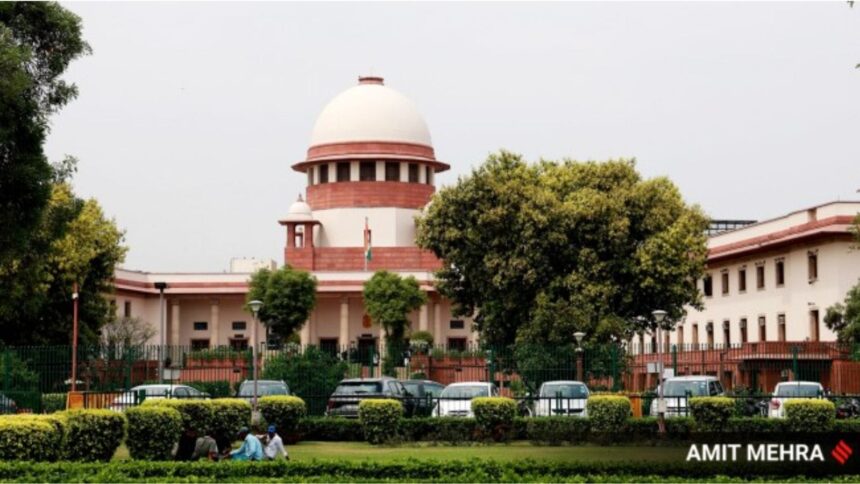The Supreme Court on Thursday deferred hearing petitions challenging the Waqf (Amendment) Act, 2025, till May 20 to consider the prayer for an interim stay of the provisions.
The petitions were earlier being heard by a three-judge bench presided over by former Chief Justice of India (CJI) Sanjiv Khanna. With Justice Khanna retiring, they came up before a two-judge bench presided over by CJI B R Gavai.
Solicitor General Tushar Mehta, appearing for the Centre, informed the bench also comprising Justice A G Masih that the government had filed its counter-affidavit to the petitions on certain aspects of the law which were flagged by the court in earlier hearings.
Even as it expressed concerns on the waqf by user concept, the Supreme Court had earlier quizzed the Centre over the changes introduced to the Waqf law for retaining the status retrospectively to only registered waqfs, as well as the inclusion of non-Muslims in the state Waqf Boards and Central Waqf Council.
Though dozens of petitions were filed in the Supreme Court challenging the 2025 amendments, the court had decided to enlist only five of them as lead matters and directed that the rest be treated as intervention applications.
On Thursday, a counsel pointed out that the five lead petitions chosen by the court were all filed by Muslim parties, even though there were several Hindu petitioners too. “It should not give a polarised impression,” he told the bench, and urged it to allow others to file writ petitions as well.
Solicitor General Tushar Mehta countered this, saying, “Nobody is giving any polarised impression.” Senior advocate Kapil Sibal, appearing for some of the petitioners, also opposed this.
Besides petitions challenging the 2025 amendments, the Supreme Court is also seized of a petition , 1995. Noting that the petition had been pending for a long time, the bench presided by former CJI Khanna had said earlier that it would be heard separately.
On Thursday, CJI Gavai said the court will not permit any challenge to the 1995 Act in petitions challenging the 2025 amendments.
Advocate Vishnu Shankar Jain, appearing for the petitioner challenging the 1995 Act, sought a hearing. To this, CJI Gavai asked the counsel when the 1995 law was challenged. Jain said, “It was challenged earlier, they asked us to go to the High Court. We filed around 140 petitions, which are pending in different high courts, and now we have filed the present writ petition, which is a fresh matter challenging various provisions.”
The CJI asked, “How can we permit you to raise the challenge to the provisions of the 1995 Act in the 2025 Act?”
Jain responded that he is also seeking interim relief in respect of some provisions of the 2025 Act, but CJI Gavai said, “We will not consider any request or stay of the provisions of the 1995 Act. We are making it clear. Just because someone is trying to make a challenge to the 2025 Act, somebody just wants to jump in and challenge the 1995 Act. That will not be permissible.”








